Plenary Speakers
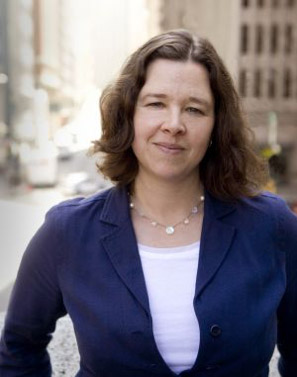
Tuesday (Oct 9), 7:00 pm
Kate Gordon, Founding Director of the Risky Business Project
"Risks and Opportunities for Idaho in a Changing Climate"
Evidence of a changing climate is all around us, from flooding in Houston and Florida to excessive heat and wildfires in the West. These physical climate impacts have real economic costs to Idaho businesses and communities. But there is also economic opportunity to be found in adapting to, and mitigating, these risks. This talk will focus on quantifying the risks to Idaho, and identifying the real growth and competitiveness opportunities facing this state as the rest of the world moves toward a carbon-constrained economy.
Kate Gordon is a lawyer, urban planner, non-profit advisor, and leader in the "green jobs" and climate risk movement in the U.S. She is currently an independent consultant and senior advisor at the Paulson Institute, where she provides strategic support on issues related to climate change and sustainable economic growth. Before joining the Paulson Institute, she was the founding director of the Risky Business Project, co-chaired by NYC Mayor Michael Bloomberg, former U.S. Secretary of the Treasury Hank Paulson, and business leader and philanthropist Tom Steyer, and focused on the economic risks the U.S. faces from unmitigated climate change.
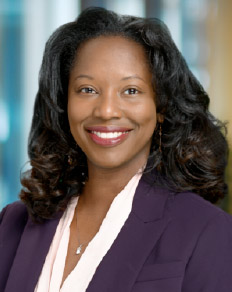
Wednesday (Oct 10), 9:00 am
Dr. Jalonne White-Newsome, The Kresge Foundation
"Equity, Engagement & Intersectionality: What it takes to build climate resilient, healthy communities"
Dr. Jalonne L. White-Newsome is Senior Program Officer at The Kresge Foundation, responsible for the Environment Program's grant portfolio on Climate Resilient & Equitable Water Systems (CREWS), addressing the intersection of climate change and public health, and is a member of the Kresge Operationalizing Racial Equity Team working to address institutional racism in the foundation and beyond. Before joining Kresge in early 2016, Jalonne served as director of federal policy at West Harlem Environmental Action Inc. (WE ACT), where she helped ensure that the concerns of low-income communities of color were integrated into federal policy, particularly on clean air, climate change and health issues. Jalonne's career has spanned state government, academia, environmental and science-based advocacy organizations, non-profit and private industry, where she spent over 10 years working as a production engineer in facilities across the U.S. She is a lead author for the human health chapter for the 4th National Climate Assessment. She is most known for her research uncovering the disproportionate health impacts of climate change on the elderly and the response and preparation of local health departments to handle extreme heat. A native of Detroit, Jalonne earned a Ph.D. in environmental health sciences from the University of Michigan School of Public Health.
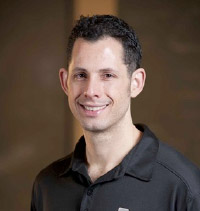
Thursday (Oct 11), 8:30 am
Dr. John Abatzoglou, University of Idaho
"State of the Northwest Climate in 2018"
Dr. Abatzoglou has been at the University of Idaho since 2009, after receiving his bachelor's degree in Atmospheric Science from UC Davis and doctorate in Earth Systems Science from UC Irvine. John's academic interests are centered around climate and weather of the American West and their impacts to people and natural resources of the West. John and his Climatology Lab at the University of Idaho have published over 100 papers and book chapters on climate science, meteorology, and applied climate science connecting climate to water resources, wildfire and agriculture. The research group also develops web-based climate services that connect climate data with decision makers to help improve climate readiness of societies and ecosystems.
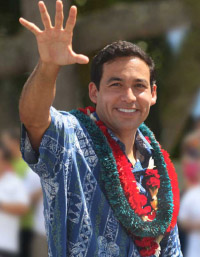
Thursday (Oct 11), lunch (~11:50 am)
Rep. Chris Lee, Hawaii State Legislature
"The Science and Strategies That Enabled Hawaii's Aggressive Climate Policies And Why Success Is Possible In The Pacific Northwest"
Hawaii has successfully passed a 100% Renewable Portfolio Standard by 2045, and a mandate for utility business model transformation in the electric sector, a statewide commitment and progress to achieve zero-emissions ground transportation by 2045, and this year's new law tying these efforts together under a single directive to achieve a zero-emissions clean economy and statewide carbon neutrality by 2045. These successes were passed with bipartisan support and with the backing of the Chamber of Commerce and business community. This success can be replicated in northwest states by translating science into actionable policy using the same strategies Hawaii did. I will cover the strategies employed, lessons learned, and outcomes of Hawaii's effort to localize and translate climate science into policy, and explain how elected officials and policy makers from Hawaii and PNW states are already coordinating behind the scenes and demonstrate that Hawaii's success can be replicated in every state.
Christopher Lee is an American politician and a Democratic member of the Hawaii House of Representatives. He was the youngest member and only millennial serving in the Hawaii State Legislature when elected in November, 2008. He currently serves as Majority Whip and Chairman of the House Committee on Energy and Environmental Protection. He also serves on the boards of several non-profit organizations and commissions. Lee is a supporter of addressing climate change and has authored laws making Hawaii the first state to mandate 100 percent renewable energy by 2045, the first state to commit to economy-wide carbon neutrality by 2045, and the first state requiring all public schools and universities to upgrade and become net-zero facilities by 2035.
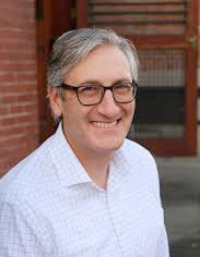
Thursday (Oct 11), lunch (~11:50 am)
Steve Burgos, Director of City of Boise Department of Public Works
"How Cities are Leading the Way: Urban Climate Adaptation"
Steve's experience includes over 20 years in the environmental industry as a private consultant and now public sector director. As Director, Steve is responsible for overseeing an $88.2 million annual budget and more than 250 employees. His department's responsibilities include wastewater collection and treatment; trash collection, recycling and composting; management of sustainability planning; management of the city's geothermal heating system; water resources planning, and providing engineering support for public streetlights, storm water drainage, hillside protection, flood plain review, construction management. Prior to joining the city, Steve was an environmental consultant for Brown and Caldwell Environmental Engineers and Scientists, where he served as a vice president. Steve is a graduate of Duke University with a degree in civil and environmental engineering and a veteran of the U.S. Navy.